International Women’s Day: DRI fights for women and girls with disabilities – especially those segregated in institutions – who are subjected to egregious human rights abuses
Around the world, women and girls with disabilities are subjected to egregious and widespread human rights violations. In particular, those who are detained in institutions and segregated from society suffer horrific abuse. DRI has found through its investigations that abuse against women and girls with disabilities – such as trafficking, forced sterilization, sexual violence, and physical abuse – is rampant, especially when women and girls are locked away and forgotten in institutions and orphanages.
DRI found an orphanage in Mexico where all girls were sterilized to hide the fact that they were being sexually abused.
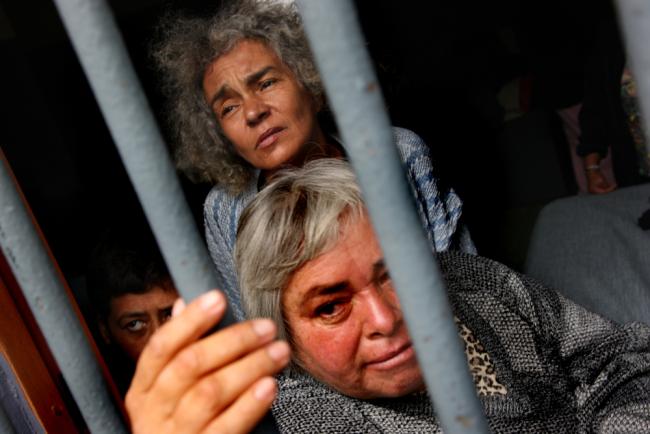
Historically, women with disabilities have been prevented from exercising their sexuality and forming family units through marriage. The eugenics theories of the late 19th and early 20th centuries, which sought to prevent persons perceived as “inferior” or “unfit” from reproducing, shaped laws and policies that still have implications for persons with disabilities today. Many proponents of eugenics “portrayed women with disabilities in particular as unfit for procreation and as incompetent mothers.”1
DRI saved women and girls from sterilization and sex slavery.
Sexual and reproductive rights are linked with the right to legal capacity – the right to make decisions about one’s own life. This right is often denied or diminished for women with disabilities. In many countries, a woman’s rights may be overruled by the legal system if she is declared to be “mentally incompetent” and placed under guardianship of the state or of family members. Sexual and reproductive rights cannot be fully guaranteed unless all women with disabilities are allowed to remain in their communities and be recognized before the law as persons that can make decisions with legal effect.
Guatemala
On March 8, 2017, 41 girls were killed in a fire in an orphanage in Guatemala. The girls, aged 14 to 17, had used the occasion of International Women’s Day to protest the sexual abuse they suffered in the institution – and were locked in their dormitory as punishment. When the fire broke out, no one came to unlock the door.
Over the last year, we have filed a case with the Inter-American Commission on Human Rights to protect the survivors of the fire and pressured the Guatemalan government to enforce the right of every child to grow up with a family. All over the world, children are locked up and restrained in orphanages and institutions where the same patterns of abuse and neglect play out day after day. DRI’s Worldwide Campaign to End the Institutionalization of Children is fighting to stop abuses against children in orphanages and institutions.
For more information, see our report After the Fire, and read DRI Executive Director Eric Rosenthal’s op-ed in the Washington Post.
Mexico
In 2015, DRI released Twice Violated, a report based on a year-long study conducted with the Women’s Group of the Colectivo Chuhcan – the first organization in Mexico City directed by persons with disabilities. The research included the application of a questionnaire to 51 women with psychosocial disabilities who were either members of the Colectivo or received outpatient services at four different health clinics and psychiatric institutions in Mexico City.
The main finding of the report was that the Mexican government has failed to implement policies that ensure women with psychosocial disabilities have safe access to sexual and reproductive health services.
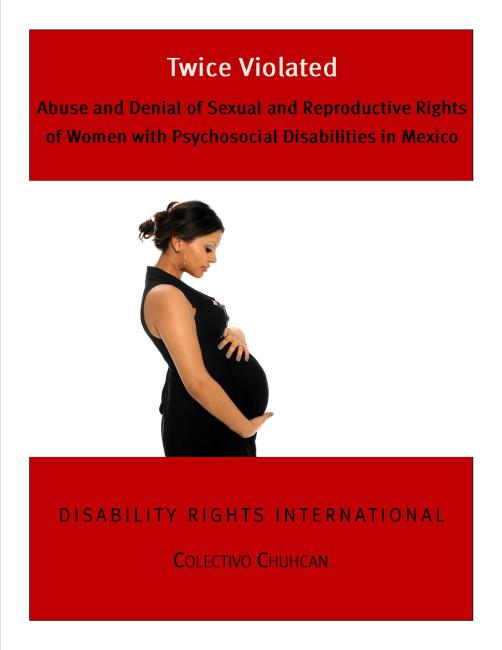
In particular, the investigation found that more than 40% of the women interviewed has suffered abuse while visiting a gynecologist, including sexual about and rape. Additionally, more than 40% of the women had been sterilized against their will or had been coerced by family members to undergo the surgical procedure.
More than 40% of the women interviewed had been sterilized against their will.
DRI has long documented problems of sexual violence in institutions in Mexico. In June 2014, DRI visited an institution in Mexico City which had a policy of forceful sterilization of every girl admitted to the institution. Given the pervasive problem of sexual violence in institutions that DRI has observed in Mexico and around the world, it is our view that the main purpose of forceful sterilization of women and girls with disabilities is to cover up sexual abuse by preventing pregnancies that could result from abuse.
Ukraine
UNICEF has estimated that 82,000 children live in Ukraine’s institutions, while other NGOs and local advocacy groups quote numbers upwards of 200,000. There is little to no oversight or protection for children placed in institutions and orphanages. Without government oversight, children detained in institutions are at risk of sexual abuse and trafficking for sex, pornography, or sale of organs. Children, especially girls, caught in the crossfire of the current armed conflict in Eastern Ukraine are especially at risk of disappearing from institutions or being abandoned in them. The UN recognizes a link between conflict and trafficking and sexual slavery; trafficking thrives in environments created by the breakdown of law and order.2
Girls from orphanages are particularly vulnerable to trafficking for sex, labor and child pornography production.
Those most vulnerable to being trafficked often belong to already marginalized and disadvantaged communities, such as children in orphanages and institutions.
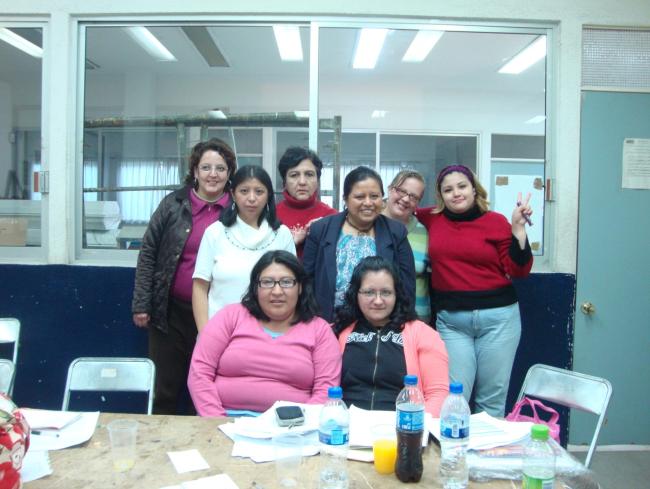
In its 2014 Trafficking in Persons report, the United States Department of State identified Ukraine as a source, transit, and destination country for trafficking for sex and forced labor.3 The International Organization for Migration reports that more than 120,000 Ukrainians have been the victim of trafficking since 1991, making Ukraine one of the largest source countries for trafficked persons in Europe.4
Within institutions, patterns of abuse and neglect remain the same, regardless of where the institution is located. As part of our investigation in Ukraine, DRI heard reports of forced contraceptive use and frequent, invasive examinations by gynecologists in order to track women’s menstrual cycles and identify pregnancies early.
In several institutions, DRI investigators were told that forced abortions were a normal part of life for women in institutions for both children and adults. Even if a woman retains her legal personhood and is not under guardianship, the doctors who care for her in the institution can override her choice not to have an abortion.
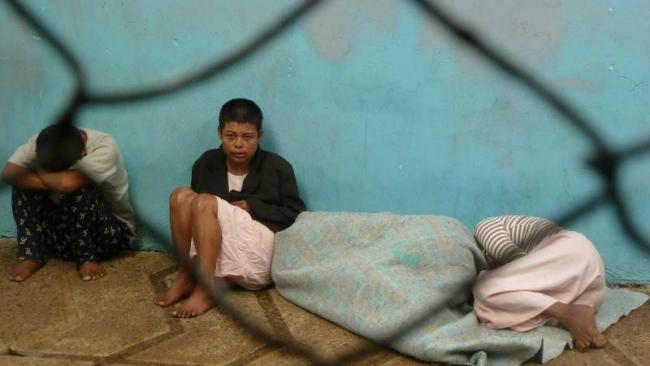
Local advocacy groups in Ukraine have identified institutions where girls are routinely sterilized without their informed consent. Ukrainian law allows for sterilization of persons with “psychosocial disorders” or intellectual disabilities. One activist told DRI, “I suspect that women are sterilized at the same time they are given abortions. I’ve never seen the same woman in an institution get pregnant twice.” Under Ukrainian law, women who are under the guardianship of the director of the institution where they are housed would not have to consent or even be informed about the procedure.
“I suspect that women are sterilized at the same time they are given abortions. I’ve never seen the same woman in an institution get pregnant twice.”
With no family or social ties in the community and few practical skills to face the world, girls who graduate from Ukrainian orphanages at the age of sixteen are highly susceptible to being trafficked, entering the sex industry, or living on the streets. Women in particular are trafficked internally, forced or coerced into working as prostitutes. Orphanages in Ukraine do not offer quality education or emotional supports, especially to girls with disabilities, leaving them vulnerable to replicate patterns of abuse into their adults lives. Without skills or an education, many vulnerable women are forced into prostitution by traffickers and criminal elements.
Kenya
DRI returned to Kenya in 2024 to continue its investigations into the state of children with disabilities.
We found the most heinous crimes - perpetrated against them - in all of our 30 years of doing this work. Infanticide – the intentional murder of an infant or young child. And in this case, those born with a disability.
Kenya is considered to have a stable democracy, whose economic and educational health is one of the highest in the continent. Yet this barbaric custom was documented by DRI in both urban and rural settings – mainly due to the belief that children with disabilities are cursed. And if not killed, will curse the extended family and community.
DRI staff were able to interview a group of more than 100 mothers, whose children were born with disabilities. Despite tremendous pressure to kill their own infants, these brave women have chosen to keep their babies and face danger to their own lives, as well as being ostracized by family and their communities.
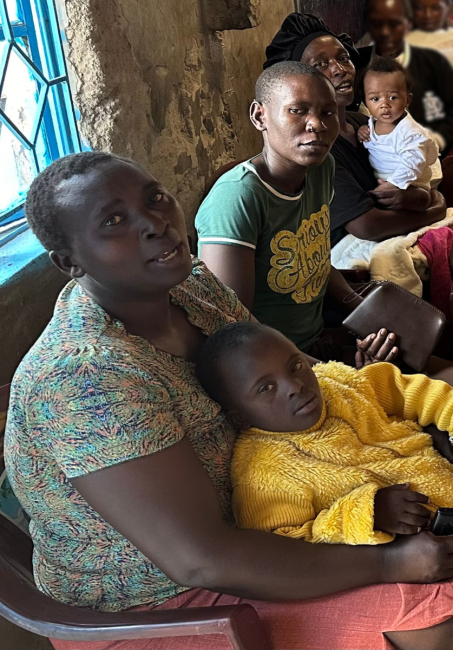
"We are hated in the community, abused and insulted, because we have a child with a disability. We constantly hear, 'If it was me, I would let the child die.' 'Leave the child and let him die.' The comments don’t stop as the child grows up.” – Mother’s group member
The killings of babies and children must be criminally prosecuted and punished. As of now, there is no accountability or legal protection, and murder is committed with impunity. The government is well aware, but has neglected to take any action.
“In some communities, if a child is identified as having a disability by the midwife, they don’t even give the child to the mother. They are thought as a curse to the community and they are killed. There is no campaign to directly address the issue of infanticide.” - A government official
The majority of the women we spoke with were told to “kill” or “get rid of” their infants. And many of these bold and courageous mothers faced harsh punishment - because they said no!
To end this nightmare, DRI needs support to:
- Create the Kenya, DRI Mothers-to-Mothers™ advocacy project – to train mothers, who fought to keep their own babies, to aid and support those who are new mothers;
- Educate physicians, midwives and other health workers to learn to encourage mothers to keep their children;
- Establish a public education program, challenging the belief that children with disabilities are cursed. And to support families to protect their children with disabilities and ensure they have the same rights as all other children;
- Pressure the government - as laws must be enacted to prevent infanticide. And mandate local governments, police and judges to arrest, prosecute and severely punish those who dare to kill a baby with impunity.
Resources
Infanticide and Abuse: Killing and confinement of children with disabilities in Kenya (2018)
After the Fire: Survivors of Hogar Seguro Virgen de la Asunción at risk (2017)
No Justice: Torture, Trafficking and Segregation in Mexico (2015)
No Way Home: The Exploitation and Abuse of Children in Ukraine’s Orphanages (2015)
Laurie Ahern, “Ukraine Orphanages Feeder for Human Trafficking,” The Huffington Post (2015)
Citations
- Eds. Gloria Filax and Dena Taylor, Disabled Mothers: Stories of Scholarship by and about Mothers with Disabilities (2014) Demeter Press: Canada, p. 7.
- Elisabeth Rehn and Ellen Johnson Sirleaf, Women, War, and Peace: The Independent Expert’s Assessment on the Impact of Armed Conflict on Women and Women’s Role in Peacebuilding, 2012.
- United States Department of State, 2014 Trafficking in Persons Report – Ukraine, page 390, 2014.
- International Organization for Migration, Ukraine.
